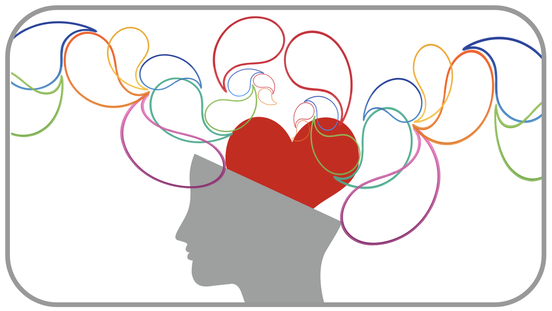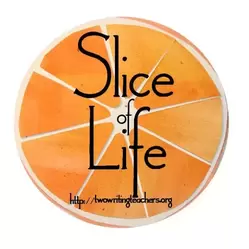|
Like many of us, I have been eager to move past 2020 without really looking back. I usually enjoy beginning each New Year by reflecting on the past year's learning and shaping plans for the next. However, the idea of lingering in the residue of 2020 has been unappealing at best, horrifying at worst. Who really wants to reflect on one of the hardest year's ever?
To complicate the reflective work even more, I tend to judge myself for not having enough pain this year to even really give myself permission to grieve or process it. Certainly, many people have had it much worse than I have. I continue to live a life with much privilege. We do not have hunger or housing insecurity. While 2020 has been challenging professionally, I have managed to keep my work afloat enough to support us. And most significantly, I have not lost a loved one to COVID (or anything else) this year. So what do I really have to lament from 2020? My sweet friend, Krystle Cobran, author of The Brave Educator, once told me, "We have a tendency to compare pain." She went on to say that using someone else's pain to delegitimize our own only delays our healing. So I try to give myself permission to process my experiences, even when some part of my brain tells me that they aren't serious enough to warrant attention because someone else's pain is more. I have learned the truth, however, that I can't be of service to anyone if I haven't tended my own inner garden in ways that are loving. This means acknowledging my hurts and grieving my losses, even if they seem smaller than someone else's. So when another friend, Lizzie Merritt, mentioned that she had just finished her "annual year in review" process, I thought, "Wait a minute! Perhaps, this year needs to be looked at even more closely than usual, rather than boxed up and stored in the recesses of my psychological closet." Lizzie was kind enough to share with me a reflective tool she created for learning from a previous year and planning for a new one. What I love about Lizzie's work is that she seems to really find a balance between action and reflection, between listening to ourselves and engaging our power to move past our limitations. For example, Lizzie's book about willpower begins with recommendations about learning to meditate. Lizzie was kind enough to let me share her year-in-review tool. I found the reflective the process challenging. I was surprised by how tender I was and how much my weary inner self wanted to avoid the work of self-reflection. I worked through the process in four different sittings, which helped. Because my work has demanded so much focus this year, I didn't pick work as a category. Basically, I never need nudging to work more. Instead, I chose: Health and Fitness; Home/Physical Environment; and Fun and Leisure. All of these areas need some serious attention from me. In fact, when I got to "Fun and Leisure," I was stumped (Does working on a "fun" writing project count?). Here's some of what I learned from the whole reflective process:
So, while I have no interest in a repeat of 2020, now that it is almost behind me, I am grateful for what it is taught me. May 2021 bring everyone at least some small dose of "normal." May we be kind to ourselves as we process 2020's difficulties, and may or biggest growth work of this year the stay with us, propelling us to be our most powerful selves.
1 Comment
Image by Mystic Art Design from Pixabay. I write this post amid construction noises. Repairs are being made after an undetected, leaky pipe wreaked havoc on our floors and cabinets. When we learned of the hidden flood, the contractors mopped and dried and disassembled, leaving us without a kitchen or any common living area. And then they quit. That was almost three months ago. Due to an odd assortment of COVID19 related delays, the work of putting everything back together has just begun today. Living in the back of the house for months--eating mostly take-out on our bedroom floor--has added a layer of stress to a time that was not short on stressors. And before it is all over with, we will have to move all the way out of the house, storing our books and dishes and chairs and toys while we live in an Air BNB for an undetermined amount of time. For the most part, I've stayed positive and focused on what I can "control." But I am weary of the chaos and hungry for the normalcy of my home during a time when so much else can't be normal. On Sunday evening two sweet friends came over to sit six feet apart around a campfire and visit. I bent their ears about feeling simultaneously frustrated by the prospect of moving out and relieved that repairs would begin. On hearing of our impending move, Valerie said someting like, "I once had an aunt who felt stuck in her life. So she took everything out of her house onto the lawn and put it all back in a better way." And the frightened, overwhelmed, tender part of me grabbed onto that story like a scuba diver following a rising line of bubbles to the surface for air just in time! I was buoyed by the very idea of it. The visual image of Valerie's aunt rallying her husband to help her drag everything onto the lawn to redesign her living space from the bottom up. The metaphor of getting unstuck by looking at all the pieces of your life and reimagining or tossing them. There is such hope in the desperation of reaching that point, of shaking things up and reinventing our spaces, even our lives. So it seems that my New Year will be heralded with a rich opportunity to reorder, repair, and reclaim. It is a Marie Kondo experience on steroids, and intense physical and emotional taking stock had not even been in my universe of perspectives. Just as Valerie's story changed the way I felt about our move, stories give us an opportunity to open our hearts and see a way forward. When our imagination is against a wall, stories let us get a leg-up from someone else's. Thank you to the writer-teachers at the Two Writing Teachers Blog.
In my consulting work, I have pulled up alongside far too many beginning readers who--having been taught to read in explicit phonics programs--have inadvertently learned to neglect the meaning of what they are reading. They tend to deliberate laboriously in decoding a word--yes, an important process for beginning readers--when the context and the syntax could have confirmed their efforts and taken them from their phonetic approximation to the actual word. This is what the balanced literacy folks (and I count myself among them), refer to as “word callers.” This pattern of inattention to meaning--which leads to opportunity costs in teaching children that reading is about constructing meaning--is a legitimate problem with explicit phonics instruction.
On the other hand, I have pulled up alongside far too many beginning readers who--having been taught to read in a balanced literacy framework--have inadvertently learned to over rely on context as they problem-solve words. They often scour the picture for clues to words they could easily decode relying almost exclusively on context and moving on without looking closely at the print. This is what the phonics folks (and I count myself among them), refer to as “guessing.” This pattern of inattention to the print--which leads to opportunity costs in learning orthography--is a legitimate problem with balanced literacy. It often seems that, on either side of this debate, there is only noise and anger. There are, however, very reasonable and thoughtful folks exploring the nuances of each perspective and trying to actually listen closely to the voices of others. This can be difficult for many of us, however, myself included. Usually, this difficulty arises from the stories we tell ourselves...stories that aren't completely true. Before we make sweeping generalizations about an entire group of people--people who represent a range of ideas within a larger, general perspective--perhaps we can interrogate our beliefs about these people. To support this effort, I share The Work from Byron Katie, which is a five-step process for considering the ways our thinking tends to be biased towards self-preservation and protection of our egos. Step 1: If something someone says or does causes you distress, identify the underlying story/belief you are telling yourself, such as Balanced literacy folks do not believe in teaching students explicit or systematic phonics. OR Science of reading folks do not care if children learn to comprehend. OR Balanced literacy folks believe that learning to read is as easy as learning to talk. OR Science of reading folks don’t care if children read from dreary books and learn to hate reading. Step 2: Ask yourself if this belief is actually true. Your ego may jump up here and try to assert how accurate these extreme, negative statements are. Don’t overlook the ego’s need to be right, even at the expense of ourselves, our children, our relationships, etc. Perhaps you immediately recognize that these statements aren’t absolutely true. If so, skip step three. If you are still convinced that the statements above are absolutely true, then you will want to check out step three. Step 3: Go deeper. Ask yourself if the statement is absolutely true? Are there any exceptions? Could there be places where this belief doesn’t hold up? Do you know anyone who appreciates the contributions of the "science of reading" and also has demonstrated a clear commitment to student engagement and great texts? Do you know anyone who ascribes to "balanced literacy" who is intentional about phonics instruction? Of course, if you are honest with yourself (and you must be), you will recognize that there are circumstances where these statements are not true. Step 4: Think about how the negative belief affects you. Who are you when you believe this? How do you act? What do you say? How do you feel? Consider who you would be without this belief. Would you be more open to possibilities? Would you be better able to listen? Would you be able to focus on and expand what is working? Would you be better able to find opportunities for connection? Would you judge others less? Would you judge yourself less? Step 5: Flip the statements and see if you can persuade your ego that these new statements are at least somewhat true, if not absolutely true. Balanced literacy folks believe in teaching students explicit or systematic phonics. OR Science of reading folks care if children learn to comprehend. OR Balanced literacy folks don’t believe that learning to read is as easy as learning to talk. OR Science of reading folks care if children learn to hate reading. Notice the shift in your breathing and in your body tension as you actually step into the truth of these flipped statements. If you can believe in at least the possibility of these statements, despite the fact that you may have encountered some folks who seem to embody the opposites, then you are on your way. And then, if you want to move to ninja-level honesty, you can flip the statements in another way and consider the truth in them. For example, Science of reading folks do not believe in teaching students explicit or systematic phonics. (Children in classrooms with explicit phonics programs can learn the elements of the print system without learning how to apply them independently, in context. In fact, this problem is pretty widespread.) Balanced literacy folks do not care if children learn to comprehend. (Children in balanced literacy classrooms can also develop issues with comprehension. In fact, this problem is pretty widespread.) What does this extreme switch do to your perspective? Can we make space for the nuances within the perspectives with which we align? These latter points are an extreme, but they illustrates the ways that we construct realities that support our belief systems. Looking at the issues in the perspectives with which you align is important, honest work that is well within the scope of our individual power. You will accomplish more in addressing these issues than in engaging in angry debates where both sides are so triggered that no one can hear anyone else or look honestly at themselves. Until we consider the truth of the first set of flipped statements (i.e., Balanced literacy folks believe in teaching students explicit or systematic phonics; Science of reading folks care if children learn to comprehend.) we will find it difficult to actually hear each other and work together on behalf of children. The takeaways here are these:
|
AuthorDr. Jan Burkins is a full-time writer, consultant, and professional development provider. Categories
All
|



 RSS Feed
RSS Feed